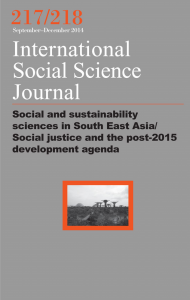Closing Gender Stereotypes
Sweet Briar College’s Board of directors announced last week that the college will close its doors at the end of the 2014-2015 academic year. Sweet Briar is a liberal art’s women’s college located outside of Lynchburg, Virginia. Current enrollment is estimated at around 700 students. 300 faculty serve those students and the faculty to student ratio is listed as 8:1. Rising tuition rates and declining enrollments were the reasons cited for the demise of the prominent women’s college. As...








1467-7660/asset/DECH_right.gif?v=1&s=a8dee74c7ae152de95ab4f33ecaa1a00526b2bd2)
1099-1328/asset/dsa_logo.jpg?v=1&s=e4815e0ca3064f294ac2e8e6d95918f84e0888dd)